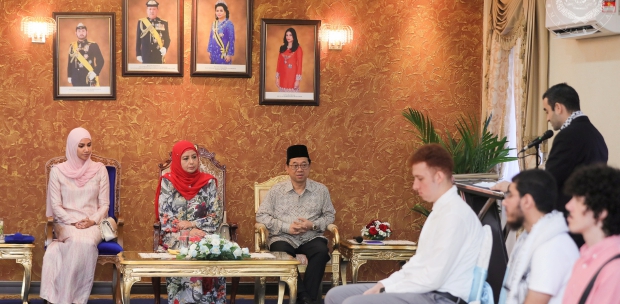SEVERAL initiatives have been suggested for next year’s education calendar by the Education Ministry.
Being in the field of moral education and civics, and citizenship, I would like to share my views and ideas for a proactive and progressive start.
I will comment on fields that I have been trained to teach, and have researched and published, locally and internationally. This is important because many a time, scholars speak about anything and everything based on their opinion.
For example, those who speak on moral and civics base their views on their religious understanding, which may or may not apply to the current knowledge-based society.
If one were to make suggestions for the 2019 school initiatives based only on what they hear, read or believe could work well, then I would call it “Panadol treatment”. This is because it will focus only on the surface of each initiative and is prone to failure.
One of the initiatives states: Bermula 2019, sekolah akan ada Manual Nilai yang akan dibacakan di setiap perhimpunan. (Starting from 2019, schools will have a Value Manual, which will be read out at every assembly).
This should be lauded, but merely reading out the manual during the school assembly will not inculcate values in students. They may even “shut off” as they are already studying Moral
Education (non-Muslim students) and Islamic Education (Muslim students), which are value-laden.
And other subject teachers are already integrating values into their lessons.
I suggest that the focus is shifted to 3H (head-moral cognition, heart-moral emotion and hands-moral action).
The 3H approach is on a par with Falsafah Pendidikan Kebangsaan (National Education Philosophy). The approach will differ between the primary and secondary schools.
In primary schools, pupils could be inculcated with 3H through songs, short video clips, and plays. Such activities could be showcased during the school assembly.
As for secondary school students, whose moral development is at a higher level, they can be given real-life moral dilemmas to be discussed in five- to 10-minute sessions during the school assembly.
In value-based discussions, there is no one ultimate solution, as moral decisions are made based on moral principles.
Based on my doctoral and post-doctoral research, I find that secondary students want their voices to be heard.
The more we try to indoctrinate them with values and lifestyles, the more they want to break free.
DR VISHALACHE BALAKRISHNAN
Director, Centre for Research in International and Comparative Education, Universiti Malaya, Kuala Lumpur





